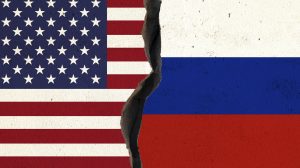Search
Published on:
U.S. Announces Broad Array of New Russia Sanctions
 On April 15, 2021, the U.S. Government announced broad new sanctions authorities that can be used to target Russia and implemented limitations on dealings in Russian sovereign debt. These measures were imposed pursuant to a newly issued Executive Order in response to Russia’s alleged election inference, the SolarWinds cyberattack, and Russia’s ongoing occupation of the Crimea region of Ukraine.
On April 15, 2021, the U.S. Government announced broad new sanctions authorities that can be used to target Russia and implemented limitations on dealings in Russian sovereign debt. These measures were imposed pursuant to a newly issued Executive Order in response to Russia’s alleged election inference, the SolarWinds cyberattack, and Russia’s ongoing occupation of the Crimea region of Ukraine.
 Global Trade & Sanctions Law
Global Trade & Sanctions Law

